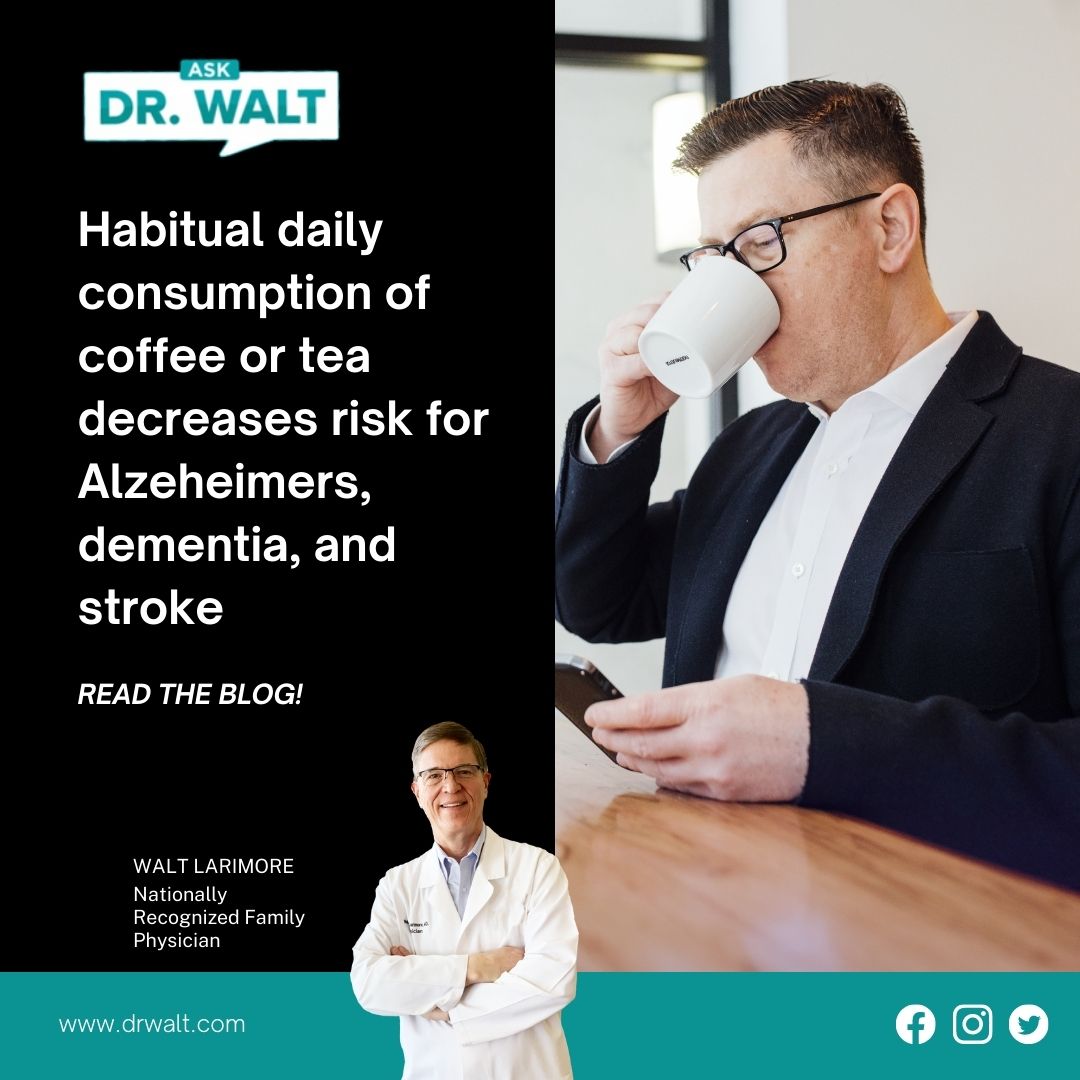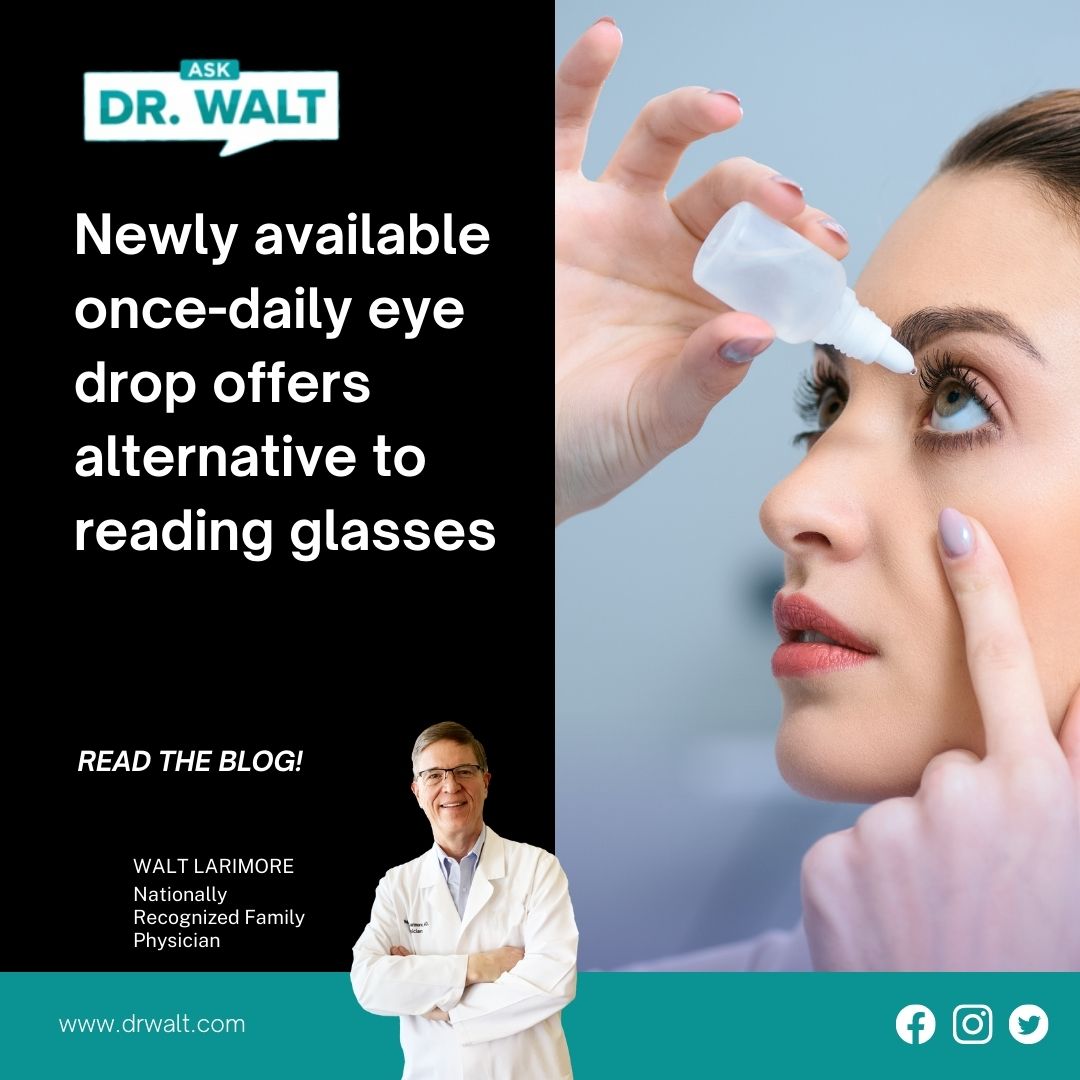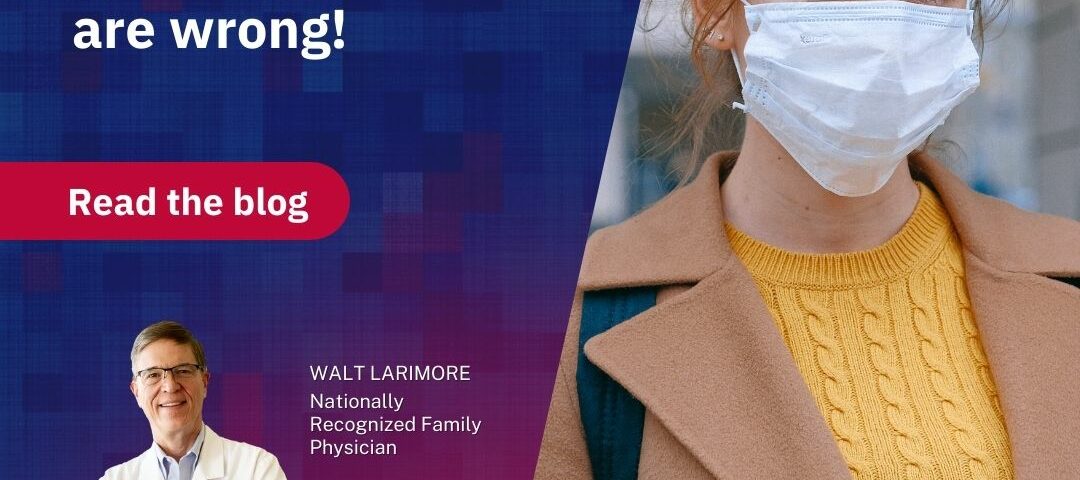
Habitual daily consumption of coffee or tea decreases risk for Alzeheimers, dementia, and stroke
January 24, 2022
Newly available once-daily eye drop offers alternative to reading glasses
January 26, 2022Getting a COVID-19 vaccination is a far, far safer way to build protection than getting sick with COVID-19. The reason is simple: COVID-19 vaccination helps protect you by creating an antibody response without you having to experience sickness. And, as we’re learning, the sickness can actually go on and on.
According to the CDC, getting sick with COVID-19 can have serious consequences.
- Getting sick with COVID-19 can cause severe illness or death, even in children, and we can’t reliably predict who will have a mild or severe illness.
- The level of protection people get from having COVID-19 (sometimes called natural immunity) may vary depending on how mild or severe their illness was, the time since their infection, and their age; and there is still not an antibody test available that can reliably determine if a person is protected from further infection.
- People who are sick with COVID-19 may spread COVID-19 to others including friends and family who are not eligible for vaccination and people at increased risk for severe illness from COVID-19.
- Most side effects from the COVID-19 vaccine are actually more common and more severe with the disease. For example, Reuters reported that COVID-19 infections “are more likely to trigger rare cardiovascular complications such as heart inflammation and irregular heartbeat than vaccines according to a British study of about 38 million people that “compared the risks of myocarditis, pericarditis and cardiac arrhythmia following a first and second dose of COVID-19 vaccines with coronavirus infections.” “We estimated between 1 and 10 extra events of myocarditis in 1 million people vaccinated with a first or second dose, but 40 extra cases in 1 million people infected with COVID-19,” Oxford professor and study lead Julia Hippisley-Cox said.
- You may have long-term health issues after the COVID-19 infection. Even people who do not have symptoms when they are initially infected can have these ongoing health problems. A very concerning autopsy-based study released this week in the European Heart Journal reported that even mild and moderate COVID-19 infections can have lingering effects on a person’s cardiovascular system. The researchers found that the virus impacts the heart, brain, and kidneys, with specific changes including decreased left and right ventricular function and a higher presence of some cardiac biomarkers. The researchers concluded, “Subjects who apparently recovered from mild to moderate SARS-CoV-2 infection show signs of subclinical multi-organ affection related to pulmonary, cardiac, thrombotic, and renal function without signs of structural brain damage, neurocognitive, or quality-of-life impairment.” Of the COVID-19 patients included in this study,
-
- 3.2% never experienced symptoms,
- 58.4% presented with mild symptoms, and
- 31.2% presented with moderate symptoms.
- The median time between initial diagnosis and follow-up for this study was 9.6 months.
Lead author Elina Larissa Petersen, a cardiology specialist at the University Heart and Vascular Center in Hamburg, Germany, said, “Some patients continue to suffer from heterogeneous symptoms after the acute phase of critical illness. These conditions are described as ‘post-COVID-19 syndrome’ or—if symptoms continue longer than six months—as ‘long COVID-19 syndrome’.”
According to the CDC, when you are up to date on the COVID-19 vaccination, you can resume many activities with proper precautions (e.g., wearing a mask while indoors in public spaces).
- When you are up to date on the COVID-19 vaccination, you may not always need to wear a mask in public.
- In general, you do not need to wear a mask in outdoor settings.
- In areas with high numbers of COVID-19 cases, consider wearing a mask in crowded outdoor settings and for activities with close contact with others who are not up to date on COVID-19 vaccination.
- You should continue to wear a well-fitting mask indoors in public if you are in an area of substantial or high transmission to maximize protection and prevent possibly spreading COVID-19 to others.
- People who are up to date on COVID-19 vaccination who travel within the United States do not need to get tested for COVID-19 before or after travel or self-quarantine after travel.
- Most people who are up to date on COVID-19 vaccination with no COVID-like symptoms do not need to quarantine or be restricted from work or school following exposure to someone with suspected or confirmed COVID-19.
- People up to date on COVID-19 vaccination who have come into close contact with someone with COVID-19 should
- be tested at least 5 days after they last had close contact with someone with COVID-19 and
- wear a well-fitting mask around others for 10 days.
This blog was accurate as of the day of posting. However, as the COVID-19 pandemic rapidly evolves and the scientific community’s understanding of the novel coronavirus and the COVID vaccine develops, the information above may have changed since it was last updated. While I aim to keep all of my blogs on COVID and the COVID vaccine up to date, please visit online resources provided by the CDC, WHO, and your local public health department to stay informed on the latest news.
© Copyright WLL, INC. 2022. This blog provides a wide variety of general health information only and is not intended to be a substitute for professional medical advice, diagnosis, or treatment from your regular physician. If you are concerned about your health, take what you learn from this blog and meet with your personal doctor to discuss your concerns.



